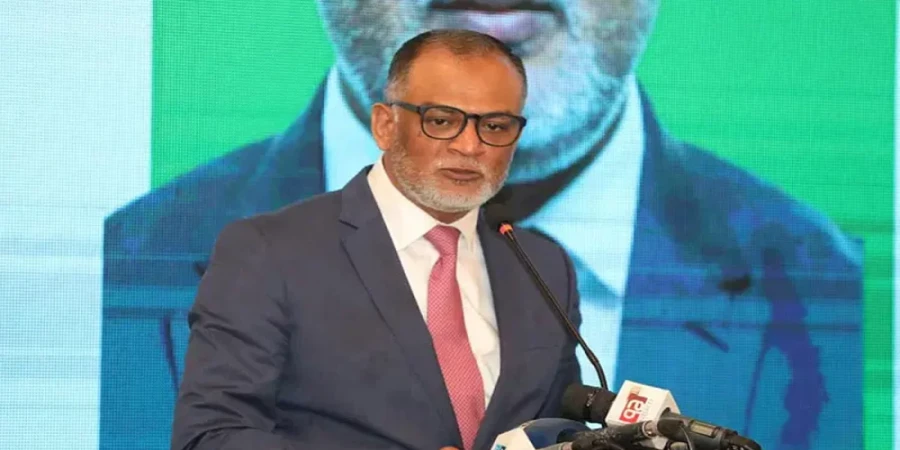
ছবি: "Business Adviser Sheikh Bashir Uddin. Photo: Collected"
The energy sector in Bangladesh was plagued with corruption and inefficiency during the previous Awami League government, according to Sheikh Bashir Uddin, a prominent business adviser. Speaking at a seminar on energy crises in the industrial sector, held at a Dhaka hotel on Saturday, Bashir Uddin recounted the difficulties faced by industrialists seeking gas connections for their factories.
He revealed that obtaining permission to dig roads for laying gas pipelines required a staggering bribe of 20 crore BDT. Additionally, entrepreneurs often had to bear the cost of constructing their own pipelines. "To get gas connections, I had to build a 40-kilometer pipeline at my own expense. On top of that, I had to pay 20 crore for road-cutting fees and several other undisclosed payments," Bashir Uddin lamented.
His statements paint a grim picture of an era marked by bureaucratic inefficiency and systemic corruption in the energy sector, further exacerbating the challenges for industrial investors.
Bashir Uddin shared a personal account of his efforts to secure a gas connection for his factory. Despite significant investments in industrial infrastructure, the process was fraught with delays and unnecessary hurdles.
"I approached the former State Minister for Energy for help. On one occasion, I stood in the rain outside his house, waiting for an audience, as though I were pleading for a job," he recounted. "When I finally got the chance to meet him, I had to endure long lectures that neither aligned with my knowledge nor made any practical sense. Nevertheless, I had no choice but to listen and comply."
Describing the experience as humiliating, he said, "As a businessman, I expected a minimum level of respect. However, I found myself in a position where I had to repeatedly say ‘Yes, Sir’ just to move things forward."
Bashir likened the process of securing gas connections to acquiring banking licenses, highlighting the systemic challenges that stifled industrial progress during the period.
Bashir Uddin quoted a former energy adviser who candidly admitted that the energy sector was one of the most corrupt in the country. "This corruption must be eradicated," Bashir emphasized.
He criticized the previous government for creating a chaotic and unjust environment where businesses and ordinary citizens had to pay exorbitant fees for basic utilities. "During that time, the country witnessed unparalleled anarchy in the energy and trade sectors. Businesspeople were deprived of the respect they deserved, and economic opportunities were stifled by crony capitalism," he said
Reflecting on the broader implications of the previous administration’s governance, Bashir Uddin noted that the nation suffered from a toxic mix of favoritism, impunity, and disregard for entrepreneurial initiatives. "We lived through an era of unchecked nepotism and chronic capitalism. Our children were not even safe in such an environment," he said.
He described the mental toll on entrepreneurs, who were forced to comply with illogical narratives and praise individuals or policies they did not agree with. "At times, it felt like I was injuring myself mentally by listening to such rhetoric. It made me question the relevance of my own knowledge and achievements," he said.
Bashir also expressed his disbelief at the extent of criminality in the energy sector. "Since joining the interim government’s initiatives, I have come to learn about financial crimes committed by certain individuals. Sometimes, I feel like conducting brain scans on these people to understand how they could become such hardened criminals," he remarked.
In stark contrast, Bashir Uddin highlighted the significant improvements under the current interim government. He called on business leaders to seize the opportunities presented by the improved environment.
"We now have a system where you don’t have to pay anyone unnecessarily. You can invest your money in your own ventures instead of bribing officials. The current government does not deny realities, and that gives me hope that solutions to existing problems are within reach," he said.
Encouraging the business community to take an active role, Bashir stressed that the government cannot do everything alone. "This is the time to step forward. Use your resources wisely and collaborate with the government to ensure sustainable growth," he urged.
Bashir Uddin’s remarks underscored the urgent need for transparency and accountability in the energy sector. He acknowledged the systemic weaknesses in the sector but remained optimistic about future reforms.
"The challenges in the energy sector are not accidents—they are by design. However, the current leadership seems willing to confront these issues head-on. With collaboration between the government and the business community, I believe we can overcome these hurdles," he concluded.
The seminar served as a platform for business leaders to discuss the pressing issues in the energy sector and explore collaborative solutions. It also shed light on the structural reforms needed to foster a more business-friendly environment, free from corruption and inefficiency.
repoter






